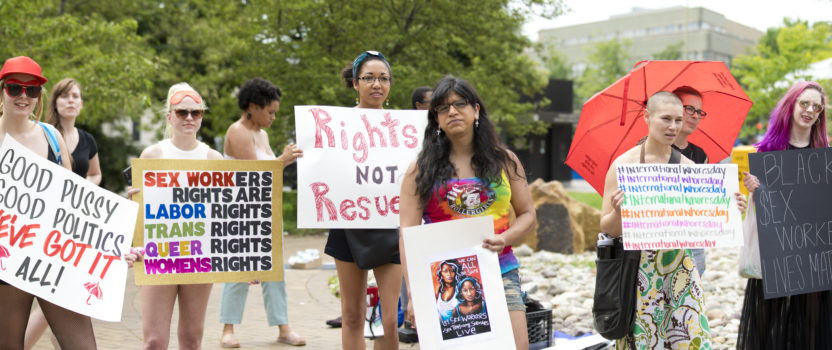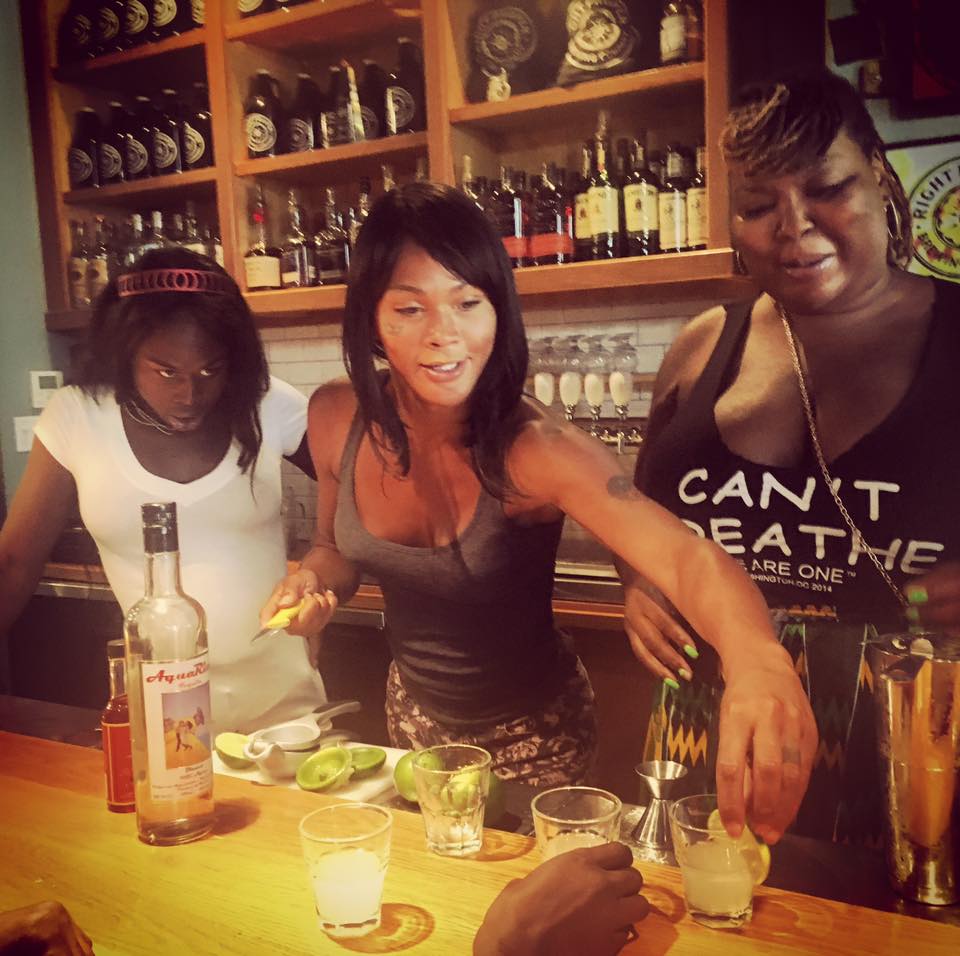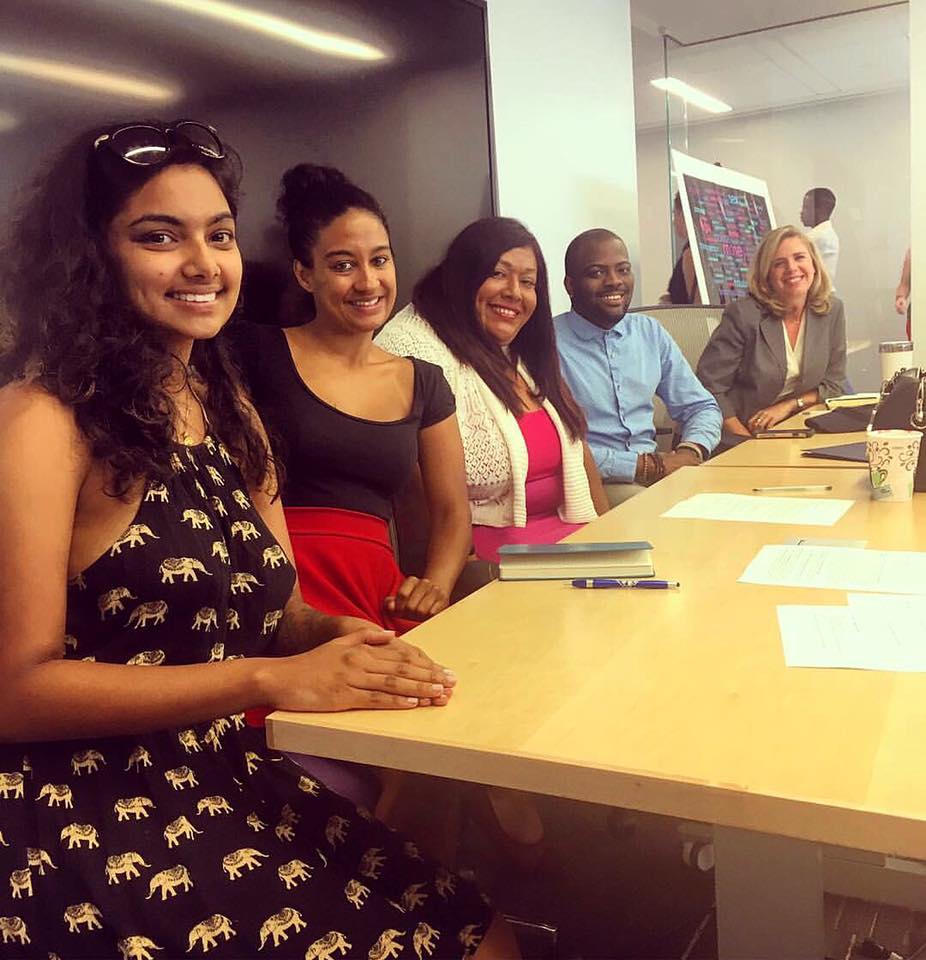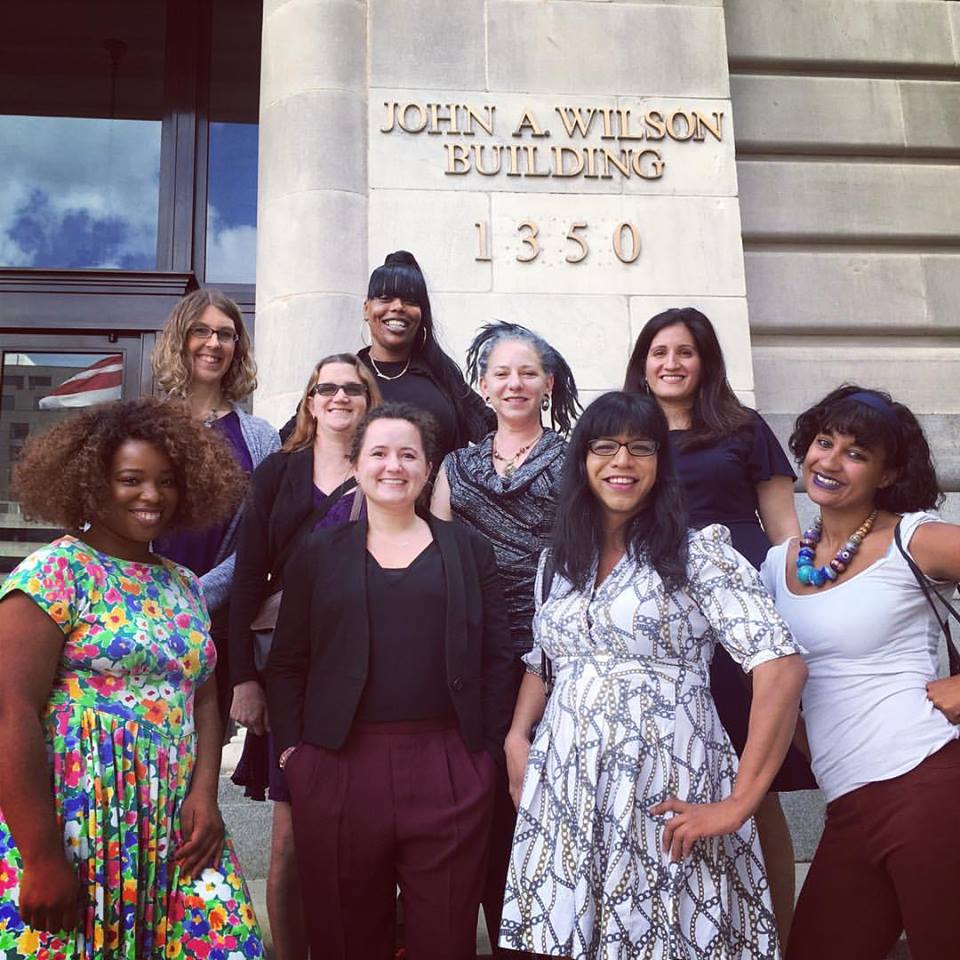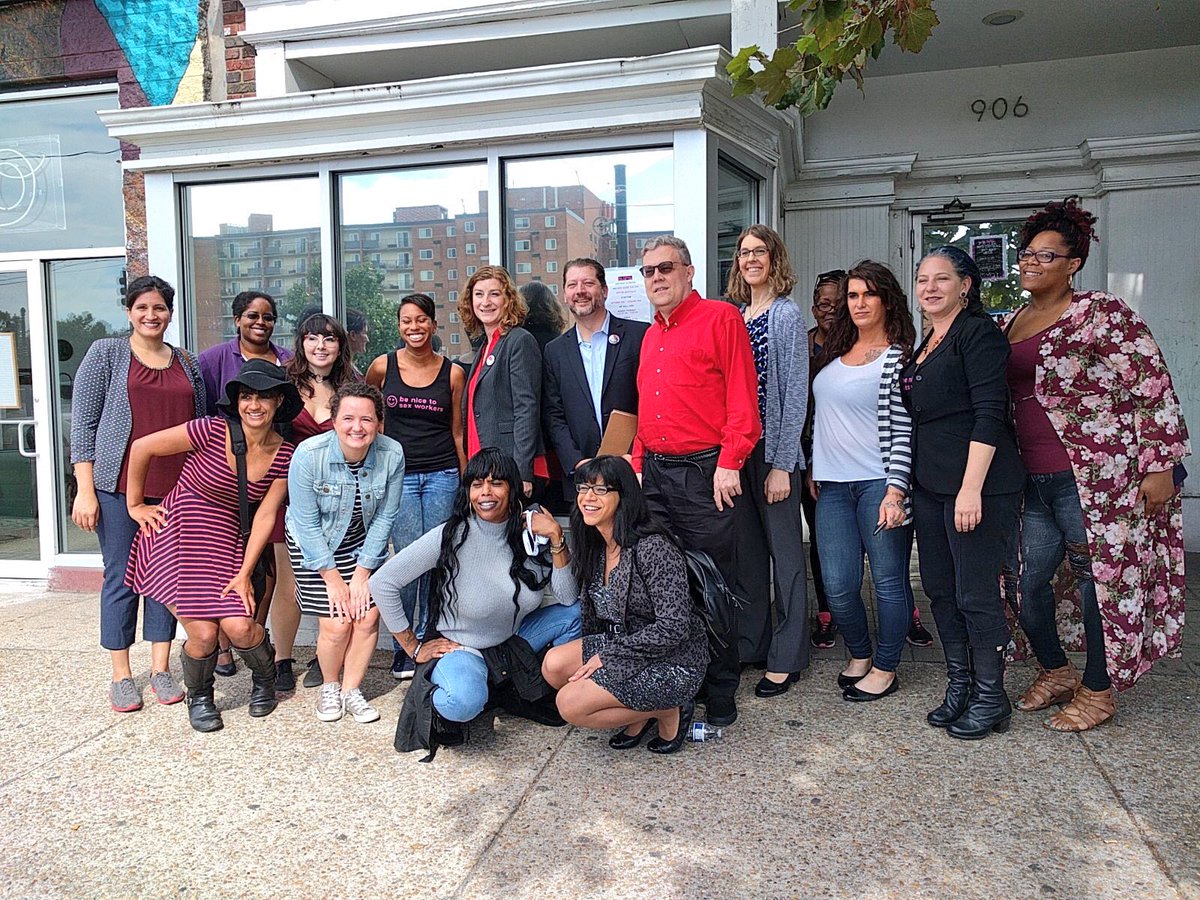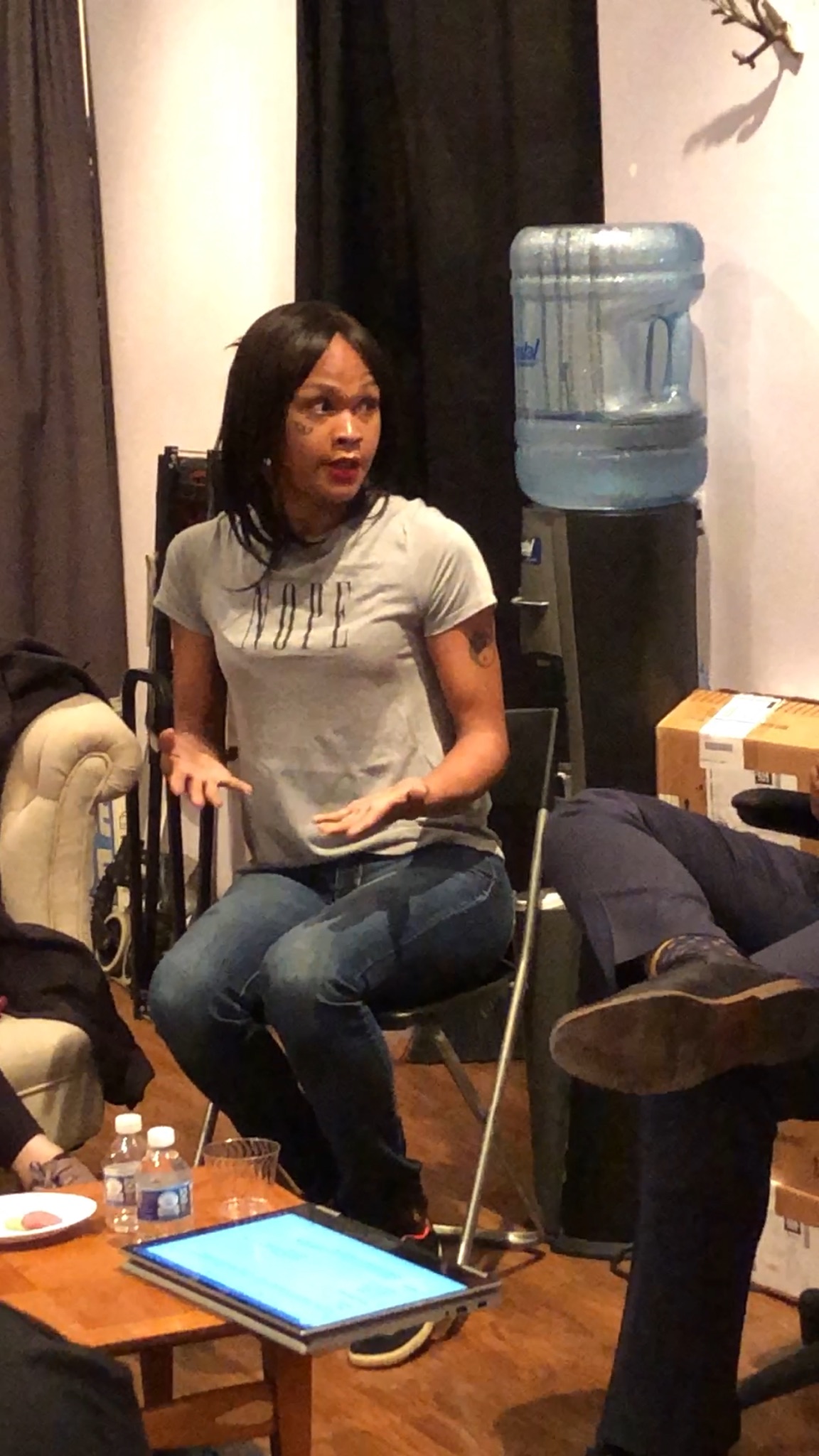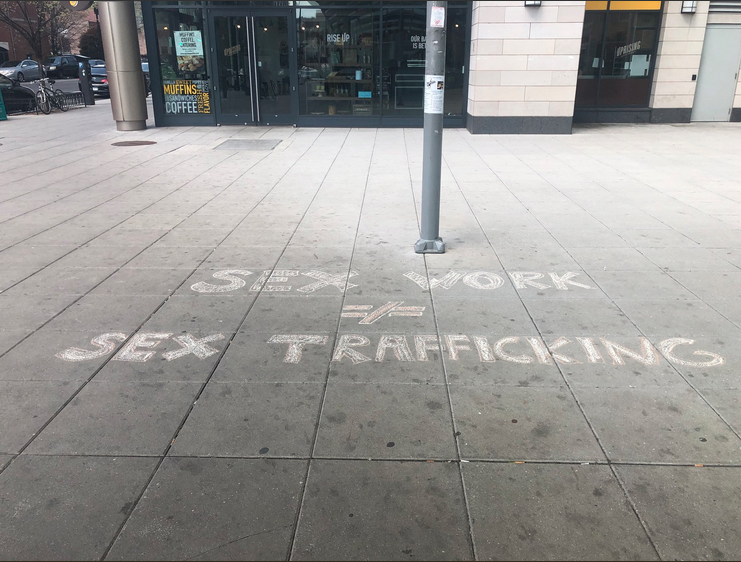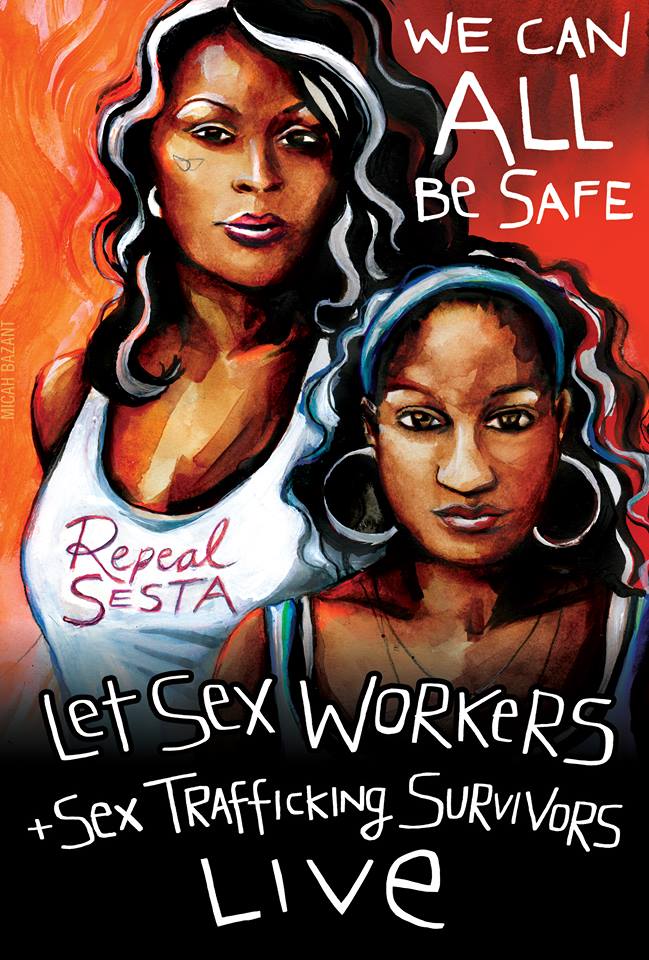The fight for decriminalization — what have we accomplished, and what happens next?
We are nearly two years in to DC’s campaign to decriminalize sex work, convened by HIPS in the fall of 2016 and growing rapidly to include local and national organizations working to promote sex workers’ rights, address gendered violence, promote public health, and build public safety. CASS has been a proud partner in this work since the 2016 convening of the Sex Workers’ Advocates Coalition where, over the course of several months, we were able to participate in developing guiding principles and policy goals that led to Councilmember Grosso’s introduction of the Reducing Criminalization to Improve Community Health & Safety Amendment Act of 2017. Since then, we’ve canvassed, rallied, created art, and more to change the public narrative around sex work.
“Decriminalization of sex work is important because [the current law] locks up individuals for simply trying to survive, specifically trans women of color,” said CASS program manager and former sex worker Nona Conner. “The majority of people who partake in street sex work are doing so for safety from homelessness, so they won’t starve, so they can get necessities.
“Sadly, a large amount of trans women of color are forced into this work because they were kicked out of their homes at a young age and had to make a way for themselves, or she stopped going to school because she was harassed by her peers, or she was discriminated against trying to seek employment. I faced those same challenges up until the time I was attacked in 2013 — not for sex work but simply for denying sex, I was stabbed over 48 times. In the time I was active in sex work, I was raped, robbed, and harassed by the police for trying to survive.”
With options limited by family rejection, employment discrimination, and homelessness, many women, trans, queer, and nonbinary people of color engage in sex work to survive. While these are not the only experiences with sex work, and many people choose to engage in sex work for a variety of reasons, CASS focuses on the experiences of street-based sex workers who are most severely impacted by the criminalization of sex work. These are also the lived experiences of our leadership team, trans and queer women of color who engaged in survival sex work while struggling with housing instability.
“I ran away from an abusive environment when I was 15 and became homeless. In the winter, sleeping outside wasn’t a possibility, and shelters only seemed to provide a false sense of security,” said CASS Executive Director Jessica Raven and former youth survival sex worker. “The only people who were willing to take me in were men who wanted to have sex with me.”
“The law calls my experience ‘child sex trafficking’ but, like 85% of people whose experiences are defined this way, I didn’t have a trafficker. Punishing me or the men who took me in wouldn’t have made me any less homeless, and instead it would have left me more vulnerable to sexual assault on the street on terms I couldn’t set.”
Through the lived experiences of our leadership, our work with DC’s trans and queer people of color seeking alternative employment opportunities, and our advocacy to center those at the margins, we’ve come a long way in the fight for safety for people in the sex trades.
Here’s a look back on what we’ve done:
September 2016 – HIPS convened the first sex workers’ rights working group made up of sex workers, allies, and organizations that work to support people in the sex trades. This group would go on to be named the Sex Worker Advocates Coalition, or SWAC. CASS worked with this coalition for the next six months to compile research to support policies that would increase safety and address police harassment of street-based sex workers in DC.
December 2016 – We joined organizers and community groups from the Sex Workers’ Advocates Coalition, led by Black trans sex worker activist Shareese Mone, for an event at the DC Center to commemorate sex workers lost to violence on International Day to End Violence Against Sex Workers.
June 2017 – CASS’s Program Manager Nona Conner launched the first phase of the Safe Bar Collective employment program — leveraging our existing partnerships with bars in our program to address sexual violence and discrimination in nightlife. The program, run for and by Black trans people, is a partnership with the Restaurant Opportunities Center (ROC) DC that seeks to build skills and create economic opportunities for trans people of color who frequently turn to survival sex work to meet their needs. While sex workers deserve safety in their work, many people who engage in survival sex work want alternatives. This program seeks to create this alternative for communities that face high rates of employment discrimination.
July 2017 – The Sex Workers’ Advocates Coalition hosted a town hall at Whitman Walker, a prominent healthcare center focusing on the health needs of the LGBTQIA+ community, including a special focus on HIV/AIDS. The panel was discussion on the decriminalization of sex work featuring our very own Executive Director Jessica Raven, as well as CHANGE and BYP100’s Preston Mitchum, Casa Ruby’s Ruby Corado, and HIPS’s Sasanka Jinadasa. The panel helped new stakeholders learn more about local efforts to decriminalize sex work and recruited new organizations to support our efforts.
September 2017 – CASS participated in a lobby day to educate local lawmakers on the harms of criminalization. CASS was joined by HIPS, BYP100, ACLU-DC, and current and former sex workers. This was an important step towards informing and educating those in the positions of power to support or oppose a bill decriminalizing sex work in DC. It was also an opportunity to put pressure on those with the power to change the current legislation which criminalizes people for doing what they need to in order to survive. Lobby day served as an opportune moment to voice the importance of the issues, with a special focus put on the ways in which those at the intersections of marginalization are most severely impacted.
October 2017 – After a full year of working collaboratively with community organizations, Councilmember David Grosso introduced the Reducing Criminalization to Improve Community Health & Safety Amendment Act of 2017, with Councilmember Robert White as a co-sponsor. The bill seeks to remove the criminal penalties associated with buying and selling sex in DC in an effort to reduce violence against street-based sex workers. The bill will also establish a task force to evaluate the effects of removing criminal penalties, as well as recommend more strategies to promote public safety, health, and protection of human rights. That month, HIPS hosted a press conference on the bill, and we were excited to welcome many new partners into the campaign.
January 2018 – In response to the “No Nuisance” bill (B22-0189), CASS testified in front of the Judiciary and Public Safety Committee. The “Drug-Related Nuisance Abatement Amendment Act of 2017’ sought to make tenants liable for allowing “prostitution”, among other things, in businesses and homes. CASS testified against this bill because though the intended result of the policy was to increase public safety, it would further endanger sex workers by forcing them to engage in street-based sex work, while ignoring factors like homelessness.
February 2018 – We started meeting with local candidates to discuss decriminalization of sex work, making this issue a central focus of DC’s primary elections and garnering the support of three local candidates who were able to challenge our current legislators to take sex workers seriously. Ward 6 candidate Lisa Hunter hosted a panel in this critical ward to help voters better understand the issue and the need to end criminalization — featuring CASS program manager and organizer Nona Conner.
March 2018 – March was spent busily organizing, strategizing, and responding to the immediate effects of SESTA and FOSTA, writing and responding to media pieces that helped to dispel myths conflating sex work and sex trafficking as well as providing stipends to trans sex workers of color in an effort to amplify the voices of those most severely impacted. Our Executive Director also wrote about the harms of SESTA and FOSTA in Greater Greater Washington. We also joined Survivors Against SESTA on calls and town halls to educate national legislators on real solutions to sex trafficking that do not harm people in the sex trades.
April 2018 – CASS, supported by our Rethink Masculinity team, led in organizing the first public outreach canvass in partnership with Metro DC DSA, BYP100, No Justice No Pride, and HIPS. We had more than 30 people join us at our office for a teach-in on decriminalization of sex work before dispersing to six locations throughout Ward 6 to talk to community members about the issue and chalk sidewalks with messages like “housing not handcuffs,” “sex work is work,” and “sex work is not sex trafficking.”
May 2018 – CASS partnered with Micah Bazant on art to oppose SESTA and FOSTA — amplifying the idea that the safety of sex workers isn’t in conflict with the safety of sex trafficking victims. We all need the same things to be safe: freedom from criminalization, housing, and safety from violence.
June 2018 – CASS partnered with Survivors Against SESTA, BYP100, HIPS, and No Justice No Pride for International Whores Day, a day to challenge stigmatization and harmful policy surrounding sex work. CASS and BYP100 organized a local action to repeal SESTA, decriminalize sex work, and advocate for the safety of sex workers. We also participated in a week of action organized by BYP100, including a pop-up art
Throughout the summer, we’ve continued to work with BYP100 to host regular canvasses and build community support for the legislation.
Where do we go from here?
Right now, the bill to decriminalize sex work is in the Judiciary & Public Safety Committee chaired by Councilmember Charles Allen. We have joined BYP100 and our partners on the Sex Workers’ Advocates Coalition in urging Councilmember Allen to set a hearing on the bill to bring forth all of the voices of people who are impacted by the criminalization of sex work in an effort to build real public safety for our communities.
Support the campaign:

